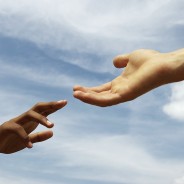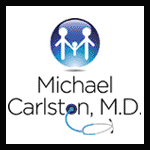
We have become increasingly isolated and fearful, unconcerned about others in our community and often afraid of “them.” Or have we?
Like everyone else, I have been thinking a lot about the Boston Marathon terrorist attack. We all have our own take on the event.
Many of you know that part of my sports medicine work is as medical support for marathons. Security has increasingly become a concern. At the Olympic Trials in Houston last year, the dark early morning walk from my hotel to the finish line medical area was doubled and complicated by the 11 foot high fencing that had been erected after I went to sleep. I had to explain my role to the police over and over, asking their help in finding my way around all the barriers to reach my station.
For nearly 35 years I have wanted to participate in the Boston Marathon, as a runner in the dim past when I had the athletic quality to do so, or more recently as a physician volunteer. This year I REALLY wanted to be there, but decided to make a business visit to Pittsburgh instead.
In New York City, I learned of the bombing a few minutes after the explosions. I called the administrative head of our group of marathon medical directors in Washington to find out if she knew whether our colleagues were safe. Turns out that she was at the finish line herself, and my call was the first one to get through as her cell service came back on. There were no injuries among the medical staff.
Watching videos from the scene, I immediately recognized the medical personnel, because we are always uniformed in some easily identifiable way (here white jackets and red caps, with many foregoing the caps). A number of thoughts ran through my head, as I am sure they ran through yours. Besides my horror at the carnage, I was looking for friends. I was thinking about how often we tend to mill about at the finish line, cheering on the runners, whenever we are less than 100% occupied with patients. I was delighted that this horrific attack took place at the precise location where medical services are so intensely concentrated. There could not have been a “better” place for the attack anywhere on the 26.2 mile course.
The most dramatic impression was the bravery of my colleagues, first responders, runners and bystanders who all rushed to help. In fact, one way to identify suspects was their reaction – nonchalantly walking away instead of rushing towards the bomb blasts. Isn’t that amazing?
The finish line was flooded with heroes. Strangers charged into danger to help others in need. After running 26 miles over four hours, many runners immediately ran another 2 miles to the hospital to donate blood.
Boston is a big city with all the big city problems, stereotypic and real. Why help? Why get involved? In the face of bombs and the likelihood of more violence, the normal response was to dive in, not to run away.
Contrast these impressions with those of the bombers. As is always the case, the perpetrators were marginalized, alienated individuals, with a depersonalized allegiance to some abstract, hateful worldview. The word “inhumane” fits perfectly.
During my life in Minnesota, the winter months provided frequent reassurance of a collective humanity. When you drive through the snow, getting stuck at a stop sign or on a turn is common. Snow-suited strangers come to the rescue, and everyone is happy, with only a wave of thanks.
That is nothing compared to what happened in Boston. We are not as disaffected as we have come to believe. Our concern for each other is real and it holds us together. New Yorkers, also not renowned for being all warm and fuzzy, where deeply emotionally moved and supported by their customary rival Bostonians.
I believe that the only real cure for this “disease” of terrorism is our humanity, our caring for each other and refusal to allow terrorists to split us apart. That is their goal after all.
